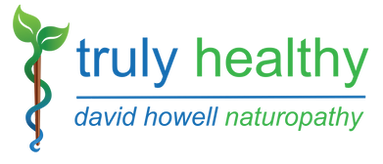Milk, For All It's Worth
- David Howell
- Jun 25, 2014
- 2 min read

Image courtesy Stefan Kuhn, Wikicommons
Is milk good for humans or not? Seems it depends on just who we’re talking about; if you’re of Asian or African descent, or if you have coeliac disease or you’re just getting on in years, then you have a higher risk of lactose intolerance and would be wise to minimise your milk intake. Have a family or personal history of cardiovascular disease? Then milk may be just your shot. Read on for more interesting info about milk….
Baby humans and calves produce enzymes in the gut (Pepsin in humans, Rennin in calves). These help milk coagulate, allowing better digestion. On weaning, pepsin and rennin production reduces, making milk harder to digest. Production of the enzyme lactase also reduces as we age, increasing the chances of lactose intolerance. Symptoms and signs of lactose intolerance may include...
Nausea, vomiting
Stomach cramps
Bloating
Increased flatulence (passing wind)
Sudden, urgent and explosive diarrhoea
Although the degree of these symptoms depends on how severe lactose intolerance is, none of them are anyone’s typical idea of fun, and they come with other consequences such as reduced bone density (a lower gut full of undigested lactose will usually pass the milk or dairy food on urgently, minimising the body’s ability to absorb calcium).
Milk protein allergy involves the immune system, and shows up with possible wheezing/asthma, hives (urticaria) and runny nose/itching eyes.
POSITIVE BENEFITS
Most studies show that milk has positive cardiovascular benefits, including reduced blood pressure, reduced cholesterol levels and insulin levels, and less obesity. Milk is a fairly balanced food for kids, containing about 3% protein, 3% fats, 88% water and 5% lactose. The calcium in milk is absorbed at about 29% in a healthy gut.
NEGATIVE HEALTH ISSUES
Milk has been linked to a 14% increased risk of nasal polyps, a more than double the risk of a particular type of ovarian cancer, and a significant risk of constipation in children. My observation is that milk and dairy foods are often involved in chronic sinus congestion in my clients, and when these products are removed from the diet, definite improvement occurs.
THE PASTEURISATION CONTROVERSY
Unfortunately, pasteurisation (heat treating) damages 2 enzymes in milk, (lactase and phosphatase), making it more indigestible. This process, however, reduces the risk of infection from drinking milk, especially from the following bugs;
Escherichia coli (E. coli)
Listeria monocytogenes (Listeriosis)
Salmonella
Campylobacter jejuni (campylobacteriosis)
These diseases may be involved in an illness called Haemolytic Uraemic Syndrome, possibly fatal, so the Queensland Government takes strong issue with the sale of non-pasteurised milk for human consumption (a $55,000 fine may apply). While non-pasteurised milk may be bought in Queensland, it’s sold for bathing purposes only (think Cleopatra supposedly bathing in asses’ milk!).
MILK ALTERNATIVES
I’m not a keen supporter of soy milk as it may reduce thyroid function in some people. I prefer to recommend rice milk, almond milk or quinoa milk, or other animal versions of milk (goat milk or sheep based dairy products). If lactose intolerant people want to enjoy cow’s milk, they can either use lactose free milk, or buy “Lacteeze” tablets (containing lactase) to be chewed just before consuming lactose containing dairy foods.
One other thing… If you’re lactose intolerant, you may want to check all your medications at your local pharmacy as many contain lactose as an inactive filler/binder.



.png)
Comments